Britain and Ireland were known as the tin islands........to the greeks ........................The Codex = Ptolemy's map of the British Isles
Sunday, 22 April 2018
Monday, 19 February 2018
what is PCDH19 epilepsy
The 38-year-old mother said she had found a doctor
in Holland who was willing to prescribe cannabis oil
and hence they shifted there in September 2017.
in Holland who was willing to prescribe cannabis oil
and hence they shifted there in September 2017.
"Nothing short of a miracle," Deacon said as the
medication brought the boy's seizures down to
about one a month.
medication brought the boy's seizures down to
about one a month.
Deacon, a hairdresser, said as they were running
out of money, they had to shift back to Britain
. However, after shifting, the medication could
not be continued as the drug is illegal in the country.
out of money, they had to shift back to Britain
. However, after shifting, the medication could
not be continued as the drug is illegal in the country.
Deacon said: "We have proved this treatment
is successful for him. This is a child's life and health.
We need this treatment desperately."
is successful for him. This is a child's life and health.
We need this treatment desperately."
Baroness Meacher, chair of the All-Party Parliamentary Group for Drugs Reform
, told the Daily Mail: "It is scandalous that a six-year-old boy is prevented from having the
medicine that can transform
his life."
, told the Daily Mail: "It is scandalous that a six-year-old boy is prevented from having the
medicine that can transform
his life."
However, the Home Office on Saturday night (17 February) said it would not issue a licence for
the personal consumption of a "Schedule 1 drug" such as cannabis.
the personal consumption of a "Schedule 1 drug" such as cannabis.
Deacon has now created a Facebook page called as "Alfie's Hope" to help support
her son's medication.
her son's medication.
He's held down and injected
Six-year-old Alfie Dingley, from Kenilworth in Warwickshire, suffers up to 30 violent seizures a day.
His parents want to treat him with medical cannabis oil, which is illegal in the UK.
The Home Office said the drug "cannot be practically prescribed, administered or supplied to the public".
A spokesperson added that it can only be used for research.
Alfie's mother, Hannah Deacon, said "you've got to fight for your kids, I want to know that I've done everything I can".
Members of the all-party parliamentary group (APPG) on drug policy reform is calling on the government to assist with Alfie's plight.
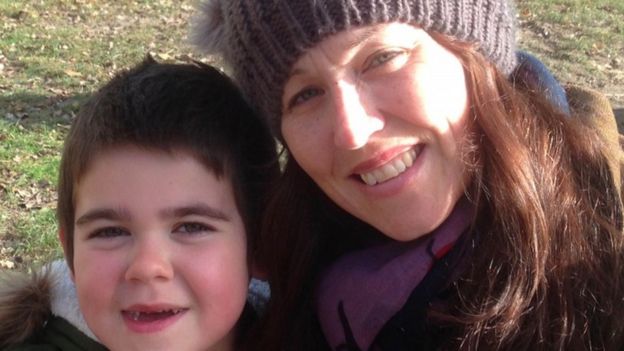 Image copyrightMAGGIE DEACON/PA WIRE
Image copyrightMAGGIE DEACON/PA WIRE
Ms Deacon said Alfie went to the Netherlands to take a cannabis-based medication in September.
She said that while there, the medication, prescribed by a paediatric neurologist, saw his seizures reduce in number, duration and severity.
At one point while in the UK, Alfie had 3,000 seizures and 48 hospital visits in a year, but while abroad he went 24 days without a single attack.
"It's very rare and very aggressive, there's only nine boys in the world with Alfie's condition," Ms Deacon said.
"We never imagined how well it would work. He's just a six-year-old boy, he deserves a happy life. We've found something that makes him happy and now we've got to take that away."
Ms Deacon said his cannabis dose was "very small" and he was taking three drops of the oil, which is made using whole plant cannabis.
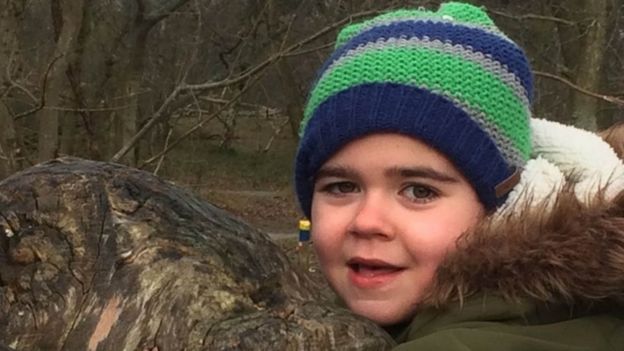 Image copyrightMAGGIE DEACON/PA WIRE
Image copyrightMAGGIE DEACON/PA WIRE
Alfie's mother said the steroids he currently takes in hospital could eventually cause his organs to fail if he keeps taking them at the rate he is.
"He doesn't know any different, he's had a very traumatic life. He's held down and injected," she said.
With the Dutch cannabis medication, it is estimated Alfie would have about 20 seizures a year.
He stayed with his parents in a holiday camp in the Netherlands to receive the treatment, but without medical insurance in the country they had to return home in January.
The APPG wants Home Secretary Amber Rudd to issue a licence for him to continue taking the medication.
Group co-chair, Conservative MP Crispin Blunt said: "It would be heartless and cruel not to allow Alfie to access the medication.
"Parliament really must look at reforming our laws to allow access to cannabis for medical purposes, which has huge public support."
 Image copyrightEPA
Image copyrightEPA
The Home Office said it recognised that people with chronic pain and debilitating illnesses are "looking to alleviate their symptoms".
A spokesperson added: "However, it is important that medicines are thoroughly tested to ensure they meet rigorous standards before being placed on the market, so that doctors and patients are assured of their efficacy, quality and safety.
"Cannabis is listed as a Schedule 1 drug, as in its raw form it is not recognised in the UK as having any medicinal benefit and is therefore subject to strict control restrictions.
"This means it cannot be practically prescribed, administered, or supplied to the public in the UK, and can only be used for research under a Home Office licence.
"The Home Office would not issue a licence to enable the personal consumption of a Schedule 1 drug."
Saturday, 27 January 2018
How dangerous is amlodipine?
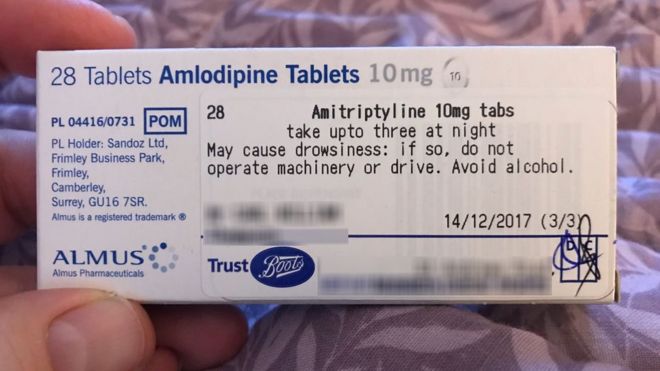
A patient has described suffering "horrendous" symptoms for three days after a Boots pharmacy gave him the wrong medication.
The 51-year-old was prescribed a drug to help with his insomnia, but was given one for high blood pressure with a similar name.
He believes Boots pharmacy staff are overworked and this led to the mistake.
Boots said the pharmacy in Basingstoke was "fully staffed" and it took patient safety "very seriously".
The patient's symptoms lasted for three days and included a "nasty, thumping, unbearable headache" and "constant nausea".
He contacted the BBC following an investigation into the Nottingham-based company, in which some pharmacy staff said they were under too much pressure and feared mistakes would be made.
The man has been getting medication from the same pharmacy in Basingstoke every month for 14 years and said he had "seen the pattern of them being overwhelmed".
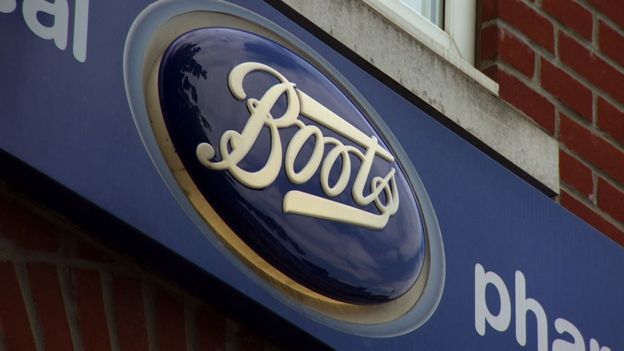
The person who gave him the wrong medication was "looking a bit frazzled", he said, and he "chalked it up to them being really stressed".
"It is shocking that this happened to me, and what I went through was horrendous," said the patient.
"Had that been someone else who took different medication to me, they could have died as a result."

What happened to the patient?
- 14 December - The patient was given the wrong medication - amlodipine instead of amitriptyline - at a Boots pharmacy in Basingstoke, Hampshire.
- 17 December - He took two pills at bedtime but had a "nagging doubt" so googled the name, realised it was a completely different medication, then called 111 and was told he was on the "borderline beginning of toxicity".
- 18 December - He "felt like someone was standing on my chest and I was having to take big deep breaths every few minutes throughout the entire night and following day as the medicine was making me feel like I couldn't catch my breath". By the afternoon he was feeling the same symptoms "with an added massive headache that had hit me when I woke up after a brief hour or so of sleep".
- 19 December - His "nasty, thumping, unbearable headache" lasted until the afternoon and he "couldn't sleep hardly at all" during that time, "had absolutely no appetite and felt a constant nausea".
- 20 December - He still had a "fuzzy muddled head" feeling, a constant pain in his right calf and a shortness of breath that caused him to periodically take "big deep sighing breaths to cope".

This type of a mistake is known as a "dispensing error".
Three people died between May 2012 and November 2013 following dispensing errors at Boots pharmacies - Douglas Lamond, 86, who died in May 2012, Arlene Devereaux, who died on her 71st birthday in November 2012, and Margaret Forrest, 86, who died in November 2013.
Inquests and a fatal accident inquiry were held into the deaths, and understaffing was not found to have contributed to any of them.
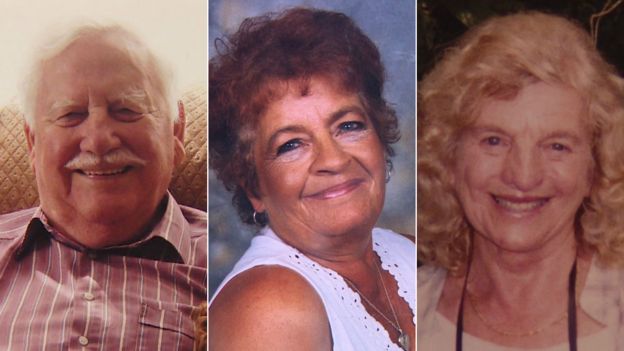 Image copyrightFAMILY PHOTOS
Image copyrightFAMILY PHOTOS
The Basingstoke patient said: "From what I saw that day, when I was given the wrong medication, there clearly is a staffing issue.
"I noticed how the place was slammed with people waiting for their medication as does happen quite often.
"I noticed that as usual the queue went slowly because it seemed like the dispensing assistants at the counters were all mega busy."

How dangerous is amlodipine?
Dr Rupert Payne from Bristol Medical School said it is "very difficult to know" whether the drug could have been fatal if the patient had carried on taking it, as patients can "vary considerably in the side effects they get with drugs".
"Virtually any drug is potentially fatal in overdose," he said.
Dr Payne said 10mg of amlodipine would be a "fairly standard dose". The patient took two 10mg pills, and the sticker on the packet advised him to take up to three.
"If it was two 10mg tablets he had, that would be more than the recommended dose and would be more likely to cause side effects," said Dr Payne.
"Common side effects in the short term could include sleeping difficulties, dizziness, headache, flushing and racing heart."

Richard Bradley, pharmacy director for Boots UK, said: "Boots takes patient safety very seriously and I was sorry to hear about [the patient's] experience.
"I can assure you that this incident was reported to the Superintendent Pharmacist's Office when it was highlighted to the pharmacy team in Basingstoke and a local investigation has been undertaken.
"Pharmacies are generally busier in the run up to Christmas as patients want to make sure they have their medicines, but this particular pharmacy was fully staffed.
"We have been in touch with [the patient] directly to apologise and discuss his concerns; we have learned from his experience to put further measures in place in the pharmacy to help prevent this type of mistake happening in the future."
Monday, 22 January 2018
Disabilities caused in babies by epilepsy drug a 'scandal'
Disabilities caused in babies by epilepsy drug a 'scandal'
By Zack AdesinaBBC Inside Out, London
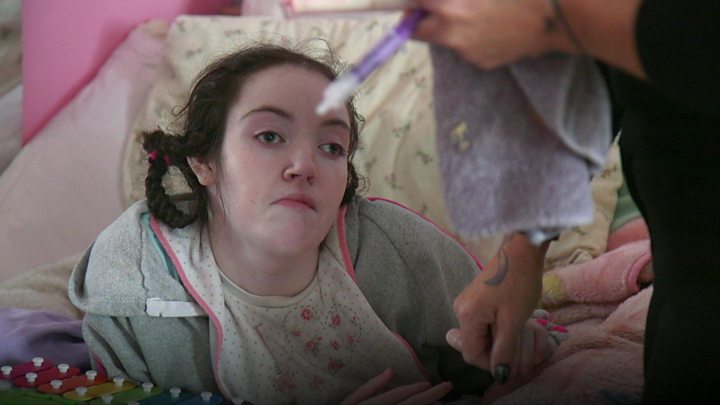
An MP has said the harm caused to children after their mothers were given the epilepsy drug sodium valproate is an "extraordinary scandal".
It is thought about 20,000 children in the UK have been left with disabilities caused by valproate since the 1970s.
Norman Lamb MP said it was also "extraordinarily distressing" new research suggested medical problems could be passed through generations.
Affected families have called for a public inquiry and compensation.
Sodium valproate, also known as Epilim, can be prescribed by doctors as a treatment for epilepsy and bipolar disorder.
It carries a risk of causing physical abnormalities, autism, low IQ and learning disabilities if babies are exposed to the drug while in the womb.
The Medicines and Healthcare Products Regulatory Agency (MHRA) said the drug is "kept under constant review", while the Department of Health said it expects the MHRA to take further action if a review finds more can be done to highlight the risks associated with it.
Many parents have claimed they were not made aware of the risks from taking the treatment while pregnant, even after new safety warnings were introduced in 2016.
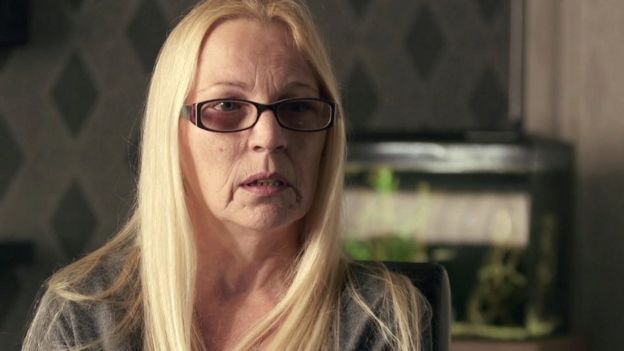
Sue Jenkinson, from Liverpool, took the drug while she was pregnant and both of her two daughters developed foetal valproate syndrome.
They have since had their own children and they believe they are showing signs of the condition, despite neither taking valproate during their own pregnancies.
"It's because I took that medication, that's why my kids haven't got a normal life and they struggle every single day of their lives," Ms Jenkinson said.
Her grandson Ryan has medical problems including dyspraxia, learning difficulties and a bowel condition, and is being monitored by Professor of Clinical Neuropsychology Gus Baker.
Prof Baker said he is currently identifying Ryan's "strengths and weaknesses" and "trying to map them on to what we understand about sodium valproate and how it affects children".
"I'll probably be in a good position to provide a formulation of what I think has happened to him and what we might be able to do to ameliorate those difficulties that he is clearly having," he said.
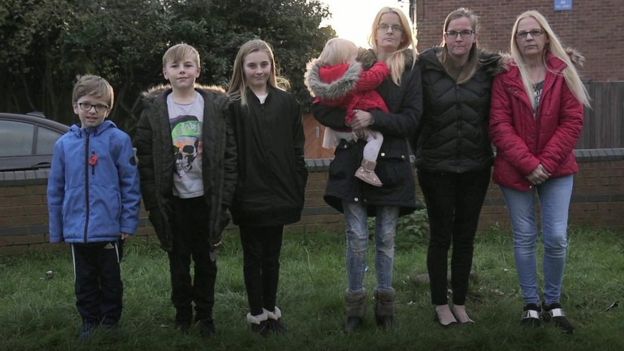
Mr Lamb, a former minister for care and support, is part of a campaign calling for the government to back compensation claims.
"We are in a good dialogue. The minister, Lord O'Shaughnessy, appears to be completely conscious of the need to stop this scandal continuing," he said.
In France, a charity-led campaign is being supported by the government and Mr Lamb has called for something similar "to happen here without delay".
The drug's maker Sanofi said valproate had been "made available to physicians to treat epileptic patients in the 1970s".
"It was and still is one of the most effective treatments for epilepsy, a serious and complex disease that can be potentially fatal to patients," it added.
The firm said it was "aware of the challenging situations faced by families with children with conditions that may be related to their mother's treatment with antiepileptic drugs".
However, they said the drug "has at all times been supplied in the UK with a warning of the risk of malformations in babies".
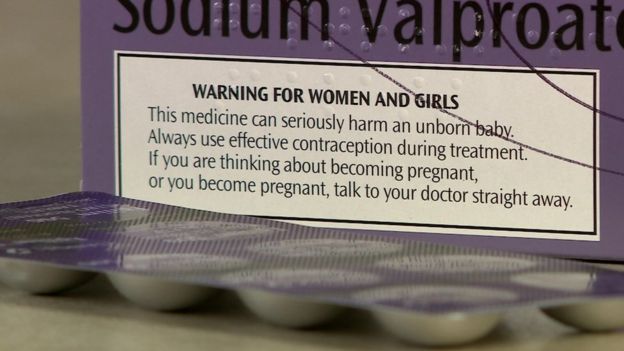
Research from Konkuk University in South Korea involving mice has also suggested disabilities caused by valproate could afflict successive generations within families.
Professor of Pharmacology Chan Young Shin said he found evidence "the compound could cause autism spectrum disorder trans-generationally".
The MHRA has said the study had "many limitations", but some families believe this has happened to them.
Mr Lamb said the research into whether the syndrome can pass between generations showed the consequences of taking valproate during pregnancy must be "extraordinarily distressing for the families affected".
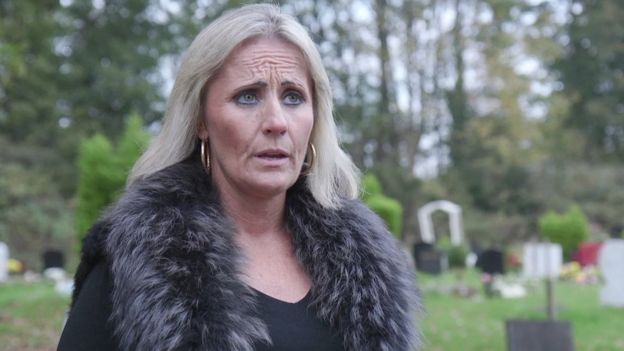
Any potential help for affected families will probably be too late for Bridget Buck.
The 19-year-old, from Stanmore in north-west London, was born with severe medical problems including brain damage and spina bifida after her mother was prescribed sodium valproate.
"I do all Bridget's overall care. I think for Bridget, I talk for Bridget, I walk for Bridget. I live for Bridget," her mother Karen said.
Yet she has been told the speed her daughter is deteriorating means she will probably only have months to live.
"Mothers shouldn't have to bury their daughter, no mother should do that," she said.
A Department of Health and Social Care spokesperson said: "Patient safety is always our priority. We want to make sure doctors give women the right information when prescribing these drugs — that's why the medicines regulator is already reviewing how effective measures to highlight these risks have been.
"We expect them to take further action if they find that more can be done."
Subscribe to:
Comments (Atom)
Featured post
More patients in Scotland given antidepressants
More patients in Scotland given antidepressants 13 October 2015 From the section Scotland Image copyright Thinkstock Image ca...

-
Murder and persecution of women and children accused of being witches is spreading around the world and destroying the lives of millions ...
-
Final day reveals cross surprise By Jemima Laing BBC Devon Alistair Courtney, archaeological student at City College Plymout...
-
Victims of a craze for cosmetic surgery By Stephen Evans BBC News, Seoul Continue reading the main story In today's Magazine ...
